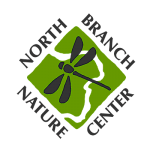Wildlife Tracking: Summer Tracks & Signs

Instructor: Sophie Mazowita
June 1 - 2, 2024 | $285
Course size: 12 students
Financial support available (contact us)
Y
ou might associate wildlife tracking with winter snow, but paying attention to wildlife activity is a year-round practice, and one that invites us into closer connection with our wild neighbors. With a bit of instruction and attunement to subtle signs, the trained tracker finds the summer landscape rich with stories of territorial marking, feeding, denning, and more. Mud, silt and sand serve as “track traps” that show animal footprints, and we can seek these out to reveal who has traveled past, starting with clear tracks and eventually picking up on the subtle arc of an animal’s claw pricks or just a couple of toes.
This course will introduce you to techniques and search images to attune your senses to spring and summer wildlife signs. Our focus will be on mammals, but tracking invites us into awareness of everything that influences an animal’s movements, from the layout of ridgelines and valley bottoms to the abundance of plants, invertebrates, and prey. You will head home with an understanding of what to look for, where to look, and the process of investigating wildlife signs, which can become a year-round practice of questioning and observing.
Course Goals & Objectives
Students will:
- Develop search images for wildlife sign including scat, territorial marking and feeding sign.
- Understand where to look for tracks outside of snow season.
- Develop your process of interpreting mammal tracks & signs.
- Consider how wildlife signs relate to an animal’s ecology and behavior.
- Learn routines and tools to continue your year-round tracking practice at home.
- Feel more connected and aware of wildlife activity.
About the Instructor
Sophie Mazowita is a consulting naturalist, educator, and certified Wildlife Track & Sign Specialist based in Jeffersonville. She offers online and in-person tracking workshops through her business, Tracking Connection, and also guides week-long wildlife trips to Yellowstone and to Canada’s polar bear country with Natural Habitat Adventures/WWF. At home in Vermont, her work focuses on identifying wildlife corridors and monitoring forest connectivity at a town and regional scale, and she manages the community science program for the nonprofit Cold Hollow to Canada. She also manages Tracker Certification, the nonprofit that offers CyberTracker wildlife tracking certifications across North America, and hosts the biannual online North American Wildlife Tracker Conference. She holds a Master’s degree from the UVM Field Naturalist Program and has studied wildlife tracking intensively with experts in New England, the Pacific Northwest, and South Africa.
Physical Requirements
Participants must be able to walk 1-2 miles over the course of a day, sometimes off trail over uneven and potentially muddy terrain. Participants should be comfortable outside in potentially hot, muggy, rainy, and/or buggy conditions for long periods of time. Please reach out to us if you have any questions about mobility and/or other accessibility needs.
Recommended Reading
Mammal Track & Sign (1st or 2nd ed.) by Mark Elbroch is the go-to reference guide and strongly recommended for anyone looking to deepen their tracking study
Local Tracks of North America is a six-panel laminated “quick guide” to tracks and scat based on Mark Elbroch’s field guide. We will have copies available for purchase on June 1-2, or you can pick one up in advance from localbirds.com
Jonah Evans’ naturetracking.com website has a fantastic gallery of wildlife tracks and signs that you can filter by species.
Visit trackingconnection.com/
Meals
Participants should bring their own lunches and snacks.
Timing
Course begins 9 AM on Saturday at North Branch Nature Center and concludes by 5 pm each day. Course concludes by 5 PM on Monday.
Academic Credit / Professional Development
This course may qualify for 1 graduate-level credit for an additional $200 course fee. All BioU courses may be accredited by Castleton University. Participants interested in receiving credit must contact us at one month in advance so we have time to arrange course accreditation.
It is the student’s responsibility to ensure that home institutions will accept the credit. Participants pursuing academic credit will be required to complete an additional assignment above and beyond the course hours, including literature review, reflective writing, or a field-based project.
This course qualifies for 20 hours of professional development hours and continuing education units. Certificates of completion are provided at the conclusion of the course.
Cancellation Policy
While we realize that unexpected circumstances arise that are out of our control, North Branch Nature Center cannot guarantee refunds for registrations cancelled within 30 days of the course. If a cancellation occurs within this window, NBNC will attempt to fill the space from our wait list and provide a full refund. If the course needs to be cancelled by NBNC, we will provide a full refund.

713 Elm Street
Montpelier, Vermont 05602
(802) 229-6206
Hours: Center Open Monday-Friday 9-4
Trails Open 24/7


